COLOMBIA’S SOLDIERS: VICTIMS OF A JUDICIAL WAR
But while there have, indeed, been real cases of “military false positives,” they have been carried out by individuals acting on their own, not as a pattern and practice within the military. What has been systematic, is the practice of judicial false positives
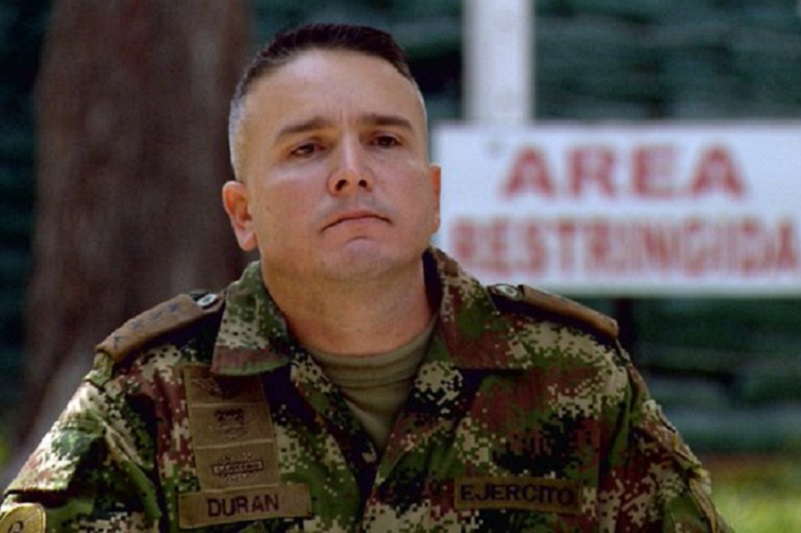
Colombia’s Soldiers: Victims of a Judicial War
But while there have, indeed, been real cases of “military false positives,” they have been carried out by individuals acting on their own, not as a pattern and practice within the military. What has been systematic, is the practice of judicial false positives

By Lia Fowler*
28 June 2016
Arnulfo Amaya, aka ‘Alonso,’ was a militant in Colombia’s National Liberation Army, a terrorist group known as the ELN. So says Cindy Rueda, who identified ‘Alonso’ as one of the men who commandeered her school bus and kidnapped her, along with 5 other children in 2002. So says Kevin Rojas, kidnapped along with Cindy, who identified “Alonso” as one of the men who held him hostage for three days, before he was rescued in an army operation led by then-Lt. Wilmar Ferney Duran. And so say Duran, now a Captain, and three soldiers under his command, who later that year participated in “Operation Jaguar” to locate ‘Alonso’ and other kidnappers still at large in San Calixto, Colombia, where the kidnapper was killed after opening fire on the soldiers. The terrorist was found in possession of an MP-5 with a 32-round magazine, one 9 mm pistol, and two hand grenades. Yet in 2010, despite overwhelming evidence that ‘Alonso’ was an ELN terrorist – and without a shred of evidence to the contrary – the kidnapper was re-branded by a prosecutor as an “innocent peasant,” and Captain Duran and his men were sentenced to 28 years in jail.
Captain Duran is one of thousands of soldiers persecuted and convicted by Colombia’s politicized courts, where prosecutors and judges systematically sacrifice Justice for their own ideological ends. The endemic corruption in the system was captured in a 2008 recording of Supreme Court Magistrate Leonidas Bustos, published only last year: “…the arguments we make should be arguments of political convenience, social,” he told his fellow magistrates during deliberations on an unrelated case. “If we try to validate this decision with arguments of a legal nature, this discussion would be Byzantine.”
While the recording was deemed illegally-obtained, it is authentic. Abused by magistrates and prosecutors for their own “political convenience,” the judicial system has become an effective weapon against an army that has already lost 16,000 soldiers at the hands of the ELN and its sister organization, the narco-terrorist group FARC — the most ruthless terrorist groups in the hemisphere.
Captain Duran’s case is considered one of the so-called “military false positives” that some human rights groups and certain U.S. officials often cite when addressing the on-going negotiations between the Colombian government and the FARC, in Havana. The term refers to cases first uncovered in 2008, where members of the military committed extra-judicial murders of civilians and passed them off as guerrilla members. According to Colombia’s Attorney General’s office, there are more than 1,800 investigations of “false positives,” affecting more than 5,000 members of the military.
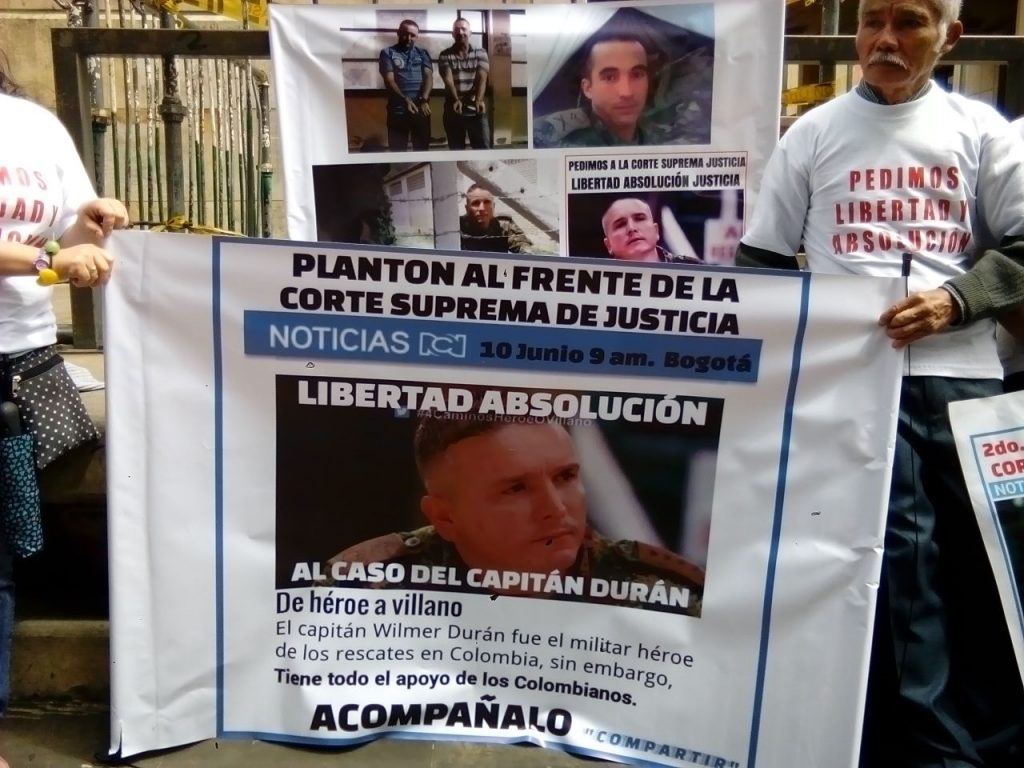
But while there have, indeed, been real cases of extra-judicial executions, they have been carried out by individuals acting on their own, not as a pattern and practice within the military. What has been systematic, is the practice of judicial false positives: the persecution of the military by prosecutors and judges that pounced on the scandal to retroactively paint terrorists killed in combat as innocent victims.
“As a result of the ‘false positives’ scandal, thousands of members of the military are paying for crimes they had nothing to do with,” said Captain Duran, in a telephonic interview from his place of confinement in Colombia.
A review of the evidence in his case supports his innocence and the violation of due process. Not a single witness provided testimony in court to support the theory that ‘Alonso’ was anything other than a member of the ELN. Verified reports and radio communications of the day in question, the positive identification of ‘Alonso’ as a terrorist by victims, co-conspirators and community members, as well as the weapons found in his possession, all supported the soldiers’ accounts.
“There is no doubt that this was a legal action on the part of the national army,” concluded Isaias Rodriguez, co-counsel in Capt. Duran’s trial, in a telephonic interview last week.
But Captain Duran’s case was not tried in a military tribunal. In a 2011 column, former vice-minister of Justice, Rafael Nieto Loaiza, explained: “When an operation results in injuries or deaths, criminal investigations are immediately conducted by prosecutors and judges within the ordinary justice system, who have no knowledge of military theory or practice, no idea of how to plan, coordinate, or execute a combat operation, and who – not infrequently – are enemies of the Armed Forces. Sometimes those killed in combat turn into ‘false positives.’ ”
Though a number of the original 27 soldiers involved in the “military false positive” scandal in 2008 have been absolved, the judicial false positives

against the military have generated the distorted image of the Colombian Army as a systematic abuser of human rights – a narrative fostered by FARC propaganda and echoed blindly by certain U.S. officials.
During a meeting in Washington between Secretary of State John Kerry and Colombian President Juan Manuel Santos in February, for example, Kerry called for significant penalties for war crimes. But while he didn’t refer to the massacres, mass-kidnappings, torture and maiming of Colombia’s civilians and soldiers by FARC terrorists, he did specifically mention the so-called “false positives.”
Similarly, Jose Miguel Vivanco of Human Rights Watch Americas often criticizes the impunity that the Santos-FARC negotiations might provide soldiers, while ignoring that those responsible for child-soldiering, sexual slavery, and other heinous war crimes will not serve a day in jail and will be rewarded with Congressional seats.
But U.S. officials whose opinions are based on experience with the Colombian Armed Forces – not on propaganda-based news clips — provide a more accurate view:
“…This is the story the FARC doesn’t want the world to know: that Colombia is fortunate to have a professional military that is committed to protecting human rights and supporting a just and equal peace,” wrote U.S. General John Kelly, former Commander of the U.S. Southern Command, in a Miami Herald Op-Ed piece on May 3, 2015.
As for Captain Duran, his case is currently before the Supreme Court’s Civil Section. In less than a month, Magistrate Margarita Cabello Blanco will be providing an opinion regarding whether his fundamental right to due process was violated. If the decision is based on political convenience, Captain Duran does not stand a chance: It is not in the interest of the Court to unmask corruption in the system. But should the Court, as it must, consider legal arguments, Captain Duran will finally be a free man.
*Lia Fowler is an American journalist and former FBI Special Agent.

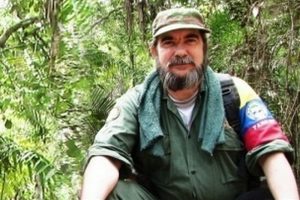
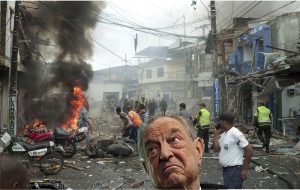
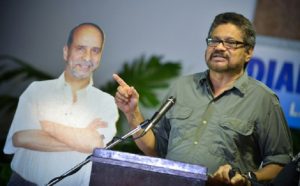
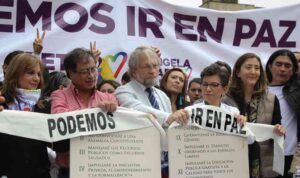
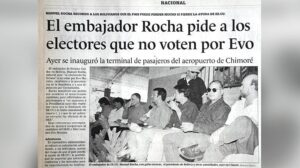


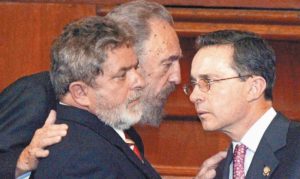
Comentarios
1 comentario en «COLOMBIA’S SOLDIERS: VICTIMS OF A JUDICIAL WAR»